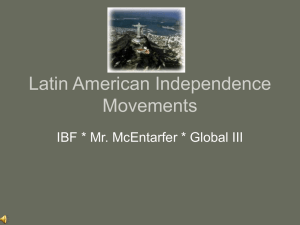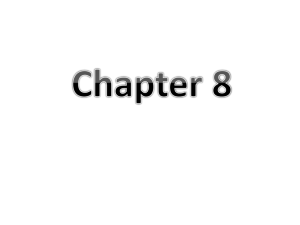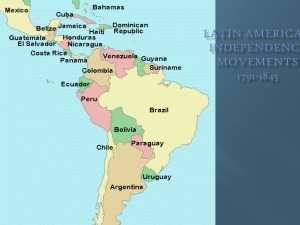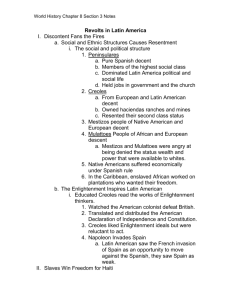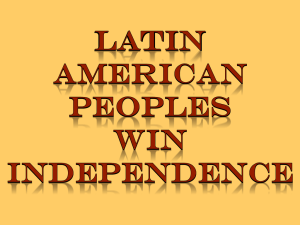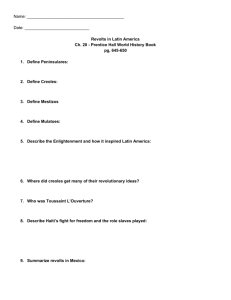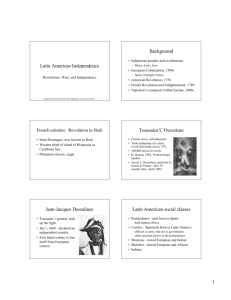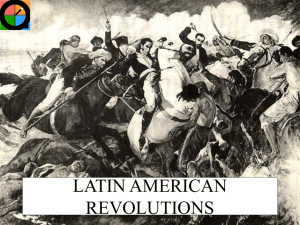1750-1914: An Age of Revolutions
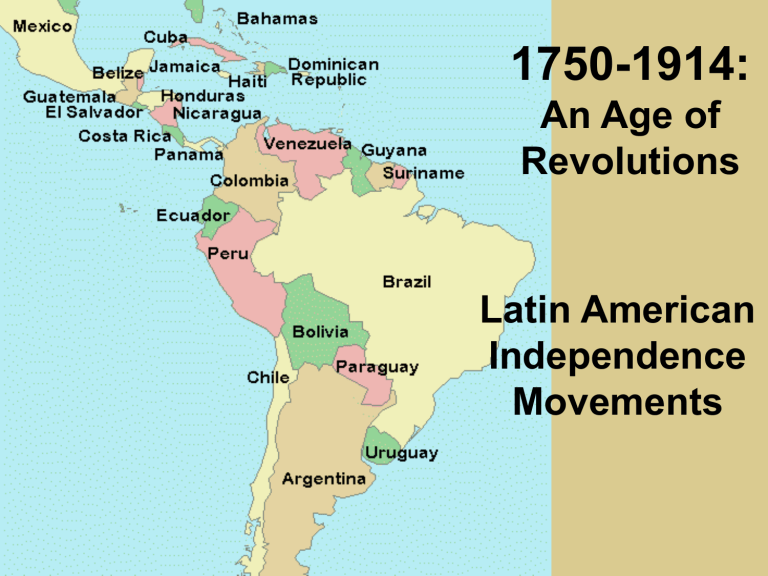
1750-1914:
An Age of
Revolutions
Latin American
Independence
Movements
What is Latin America?
• The map to the right shows the decade in which each country gained its independence.
• During what time period did most countries gain their independence?
• Rather in how many years were they “all” independent?
Reasons for Revolutions
Social economic or political inequality.
Catalytic event.
Instability.
Background: Setting the stage
• Indigenous peoples and civilizations
– Maya, Aztec, Inca
• European Colonization, 1500s
– Spain, Portugal, France
• American Revolution, 1776
• French Revolution and Enlightenment.
• Napoleon’s conquests within Europe, 1800s
(why is this important?)
European Background
• Napoleon invaded
Spain in 1808
• Removed Spain’s King
Ferdinand VII and made
Joseph (Napoleon’s brother) king of Spain
• Creoles used it as a reason for revolution
• 1810 rebellion across
Latin America
Latin American Social and Racial Classes
Peninsulares - Men born in Spain, held highest offices in govt and church
Creoles - Spaniards born in Latin America, merchants- considered 2 nd class.
Often resented power of the peninsulares
Mestizos - mixed Spanish and Indian (natives)
Mulattos - mixed Spanish and African (slaves)
Discontent- Reasons to Revolt
From Inside
• Social hierarchy led to a class system and racism in Latin
American society
– Creoles and Mestizos grow discontented with Spanish rule
• Napoleon’s invasion of Spain in 1808
– spread the ideas of the Enlightenment and the French Revolution: "
Liberty, Equality and Fraternity" inspired Latin America to break free
• Spain tries to tighten control
– Stricter administration, more efficient tax collection, tighter trade control– causes resentment among colonial population
– Strong leaders in Latin America call for independence, seeing
Napoleon’s invasion as a sign of Spanish weakness
Simon Bolivar
• Born a Creole in Venezuela
• Influenced by Enlightenment thinkers, education & trips to
Europe
• Hoped to unite all of South
America into one nation
• Very capable general brought independence to Columbia,
Venezuela, Peru, and Bolivia
• Called “The Liberator”
Jose de San Martin
• Simple, modest man
• Born Argentina, spent time in Spain as military officer
• Led army to free
Argentina and Peru
• Ecuador, 1822: San
Martin & Bolivar meet to decide how to remove
Spanish from, Peru.
San
Martin
Bolivar
Gran Colombia, 1820-1830
• Bolivar’s vision of a united South America.
• Present-day Colombia, Ecuador, Venezuela and Panama.
• Short-lived due to dissension amongst various factions.
• Bolivar resigned in 1828.
• In 1830, Bolivar’s Gran Colombia divided into Colombia, Ecuador and Venezuela
• Panama later split from Colombia with US assistance, 1903.
Mexico
• Indians and Mestizos, not Creoles, played the key role in independence movements.
• Creoles sided with Spain to avoid violence of lowerclass rebellions (until 1820).
Father Miguel Hidalgo
• As a Creole, Father
Miguel Hidalgo was part of a movement to gain
Mexican independence.
• Hidalgo was far more progressive than the others- he believed in social equality and wanted to help the
Indians.
Father Miguel Hidalgo
• In 1810, he led a mob army of 600 Indians to
Mexico City that swelled to over 60,000
• Outside the city, he declared independence,
& abolished slavery
• He disbanded mob & took the city, he was later arrested and executed by
Spanish military in 1811
Father Jose Maria Morelos
• Took leadership after Hidalgo’s death
• He wanted an independent republic, eliminate power of
Spaniards, Creoles, and Church
• Used a smaller, more disciplined army than Hidalgo
• Fought many battles in central
Mexico, eluded Spanish army
• Caught in 1815 and executed
Mexican Independence, 1821
• The 1820 revolution in Spain saw a liberal government in power.
• Creoles feared loss of influence, so they united against Spain.
• Creole, Agustin Iturbide declared himself emperor, but was overthrown.
• 1824: Establishment of the Mexican Republic.
